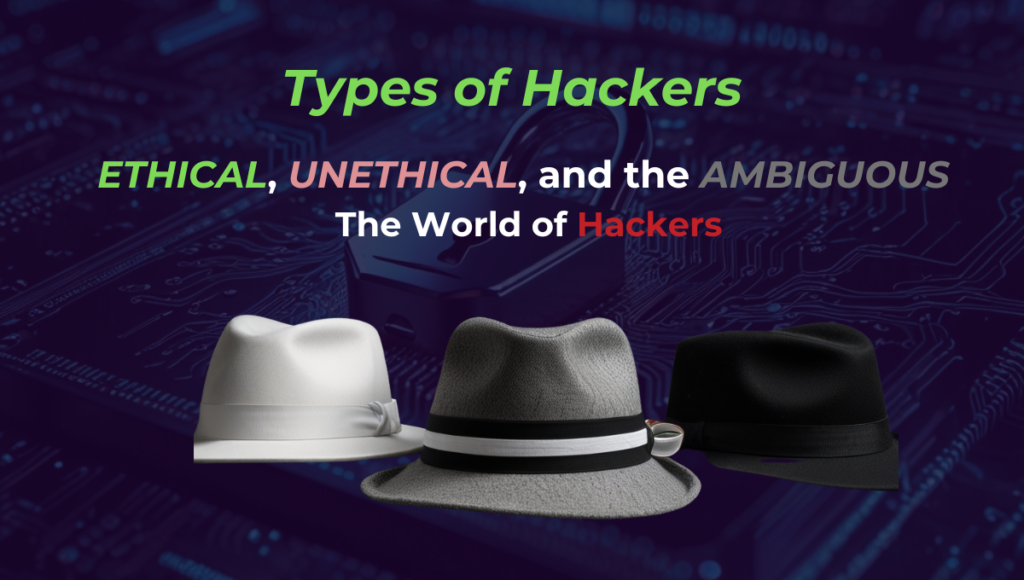Ethical Hacking Without Coding Is It Possible? [2024]
Introduction
Ethical Hacking Without Coding is it possible? In today’s digital age, cybersecurity is paramount. Ethical hackers play a crucial role in defending against cyber threats by identifying and mitigating potential risks before they can be exploited. But it is possible to engage in ethical hacking without coding skills. Let’s learn ethical hacking without coding.
The Future of Ethical Hacking Without Code
Ethical hackers have usually needed a lot of coding and programming skills in the past. However, new technology has made it possible to do effective ethical hacking without needing to know how to code very deeply. In the future, ethical hacking without needing to code is likely to become more common and widely accepted. It will be helped by having many advanced tools that automate many aspects of vulnerability assessment and penetration testing.
Types of Ethical Hacking :
- White Hat: These are ethical hackers who use their skills for defensive purposes. They identify vulnerabilities to help organizations strengthen their security.
- Black Hat: These hackers exploit vulnerabilities for malicious purposes, often for personal or financial gain.
- Grey Hat: These hackers operate in the middle ground, sometimes violating laws or ethical standards but without malicious intent. They might hack a system and then inform the owner of the vulnerabilities.

Is it Feasible?
Yes, ethical hacking without coding is feasible. While coding skills enhance an ethical hacker’s abilities, many tools and techniques can be effectively used without in-depth coding knowledge.
Tools and Technologies:
A variety of tools have been developed to facilitate ethical hacking without requiring extensive coding skills. These tools offer user-friendly interfaces and automate many aspects of the hacking process.
Practical Applications:
Non-coding ethical hacking can be applied in various scenarios, such as network scanning, vulnerability assessments, and security audits, making it accessible to a broader range of individuals.
Tools for Ethical Hacking Without Coding
Network Scanners
- Nmap: A powerful network scanning tool that maps out networks and discovers hosts and services. It provides detailed information about network topology and open ports.
- Nessus: A comprehensive vulnerability scanner that detects and assesses potential vulnerabilities in systems.
Vulnerability Scanners
- OpenVAS: An open-source tool that performs vulnerability scanning and management. It helps identify potential security issues in systems and networks.
- Nexpose: Another powerful vulnerability scanner that offers real-time monitoring and detailed reporting on security risks.
Security Information and Event Management (SIEM) Systems
- Splunk: A robust SIEM tool that analyses and visualizes security data from various sources, helping in detecting and responding to threats.
- LogRhythm: This tool provides comprehensive security intelligence, helping organizations detect and respond to cyber threats effectively.
Automated Penetration Testing Tools
- Metasploit (GUI versions): A well-known penetration testing framework that offers a graphical user interface, making it accessible to those with limited coding skills.
- Acunetix: An automated web application security testing tool that identifies vulnerabilities such as SQL injection and cross-site scripting (XSS).
Social Engineering Tools
- SET (Social Engineer Toolkit): A framework for conducting social engineering attacks. It’s designed to simulate attacks to test human susceptibility to social engineering.
- Maltego: A tool used for open-source intelligence and forensics, useful in data mining and link analysis to identify relationships between information.
Benefits of Ethical Hacking Without Coding
- Accessibility for non-Coders
- Rapid Deployment
- Cost-Effectiveness
- Enhancing Existing Security Measures
Conclusion
In conclusion, ethical hacking without coding is indeed possible and increasingly relevant in today’s cybersecurity landscape. While coding skills remain valuable, non-coding methods offer alternative avenues for identifying vulnerabilities and strengthening security measures. By leveraging automated tools, conducting regular security assessments, and providing employee education, organizations can enhance their cybersecurity posture and mitigate the risk of cyber-attacks.
Recommendation
FAQ's for Ethical Hacking Without Coding Is It Possible? [2024]
Yes, ethical hacking is legal when conducted with the explicit permission of the system owner for the purpose of improving security. Ethical hackers adhere to strict ethical guidelines and legal boundaries to ensure that their activities are conducted responsibly and lawfully.
While non-coding ethical hacking offers many advantages, it also has limitations. For example, automated tools may not detect certain types of vulnerabilities or may produce false positives. Additionally, non-coding ethical hackers may face challenges in conducting in-depth analysis or customizing assessments without coding skills.
While coding skills can be beneficial for certain aspects of ethical hacking, such as developing custom tools or exploiting vulnerabilities, they are not always a prerequisite. Non-coding methods, which rely on automated tools and frameworks, offer alternative approaches for conducting effective security assessments.
Some examples of non-coding ethical hacking tools include vulnerability scanners like Nessus and OpenVAS, network analysis tools such as Wireshark, and password cracking tools like John the Ripper. These tools streamline the process of identifying vulnerabilities and assessing security measures without extensive coding knowledge.
Non-coding ethical hacking offers several advantages, including accessibility for individuals without extensive coding skills, efficiency through the use of automated tools, and scalability for conducting security assessments across diverse systems and environments.